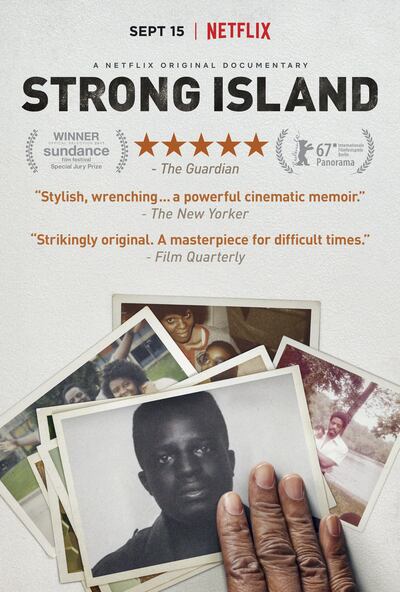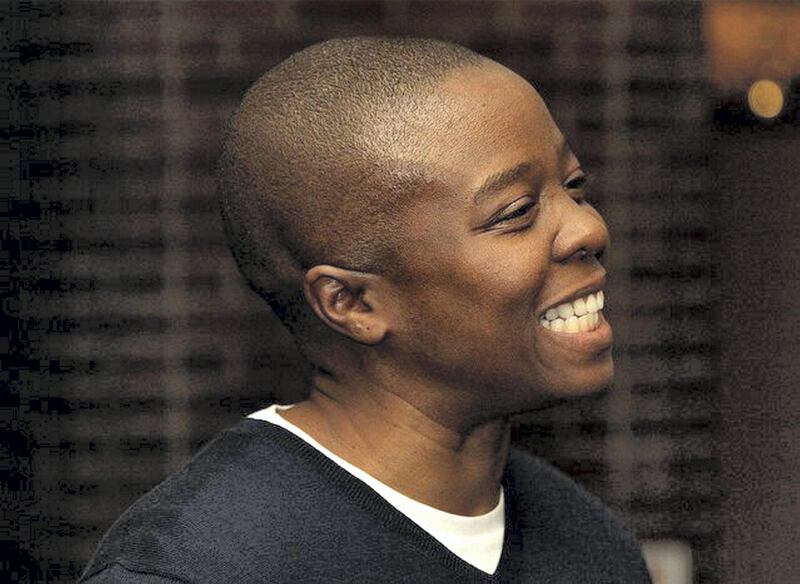Pulling 25 years of grief and racial injustice into delicate, soft focus is the genius of American filmmaker Yance Ford, whose Strong Island – a powerful cinematic memoir of the murder of his brother – delivers a fierce emotional punch, gloved with the tender intimacy of a family portrait.
Where the typical angry filmmaker might have spun a blunt, harsh retelling of how a young black mathematics teacher, William Ford Jr, 24, was gunned down by a white mechanic, Mark Reilly, 19, in April 1992 on Long Island – this original Netflix documentary, which streams on Friday, does exactly the opposite. And brilliantly so.
Ford lovingly holds family photos up to the camera and lets us rummage through his precious memories like we're kin around the kitchen table.
"I'm not willing to accept that someone else gets to say who William was," says Ford, who was numbered among Filmmaker Magazine's 25 New Faces of Independent Film in 2011, and who cut his teeth for more than a decade as a producer of the acclaimed PBS showcase POV.
Even after a quarter-century, the tears that stream down his cheeks in moving close-ups still burn with his passion to tell the truth about what happened to his unarmed brother who, astoundingly, became the prime suspect in his own murder after his killer's acquittal.
His haunting soft voice speaks from his dead brother's point of view: "You stumble out of the garage and into the yard, where you fall. You lie on the ground, bullet through your heart, and know you will never see your sisters again, your mother, your father .... That was the beginning.
"You do not know your killer will make you out to be a monster.
"You do not realise that there will be no trial. You don't know that 23 white people (on the grand jury) will decide no crime has even been committed."

A Special Jury Award winner at this year's Sundance Film Festival and lavishly praised by critics around the globe, Strong Island chronicles the arc of the Ford family – mother Barbara Dunmore, father William Ford and their three children – across their personal history, geography and tragedy, from the racial isolation of the Jim Crow South to the fresh promise of New York City, where the presumed safety of the middle-class suburbs was cruelly shattered by this senseless tragedy. One very familiar face on board with Ford as executive producer is actor Danny Glover, whose acting career over three decades in Hollywood includes hits such as Places in the Heart, The Color Purple and the Lethal Weapon series.
His involvement in Strong Island reflects his passionate advocacy on behalf of economic and social justice causes. Off-screen, Glover is also a Unicef Goodwill Ambassador and a recipient of the Lifetime Achievement Award from Amnesty International.
The Fords were not a family asking for trouble; they kept a low profile, so to speak.
"Our blackness and how to survive being black in America is something that our parents instilled in us extraordinarily well," recalls Ford, still shaken by the ripples of 1992.
As she relives her darkest days for the camera, an expression of lingering disbelief still tightens the face of Ford's elderly mother Barbara: "It was like all the sound left the world."
She recalls her attempts to speak with police at the scene, saying: "I said to the officer, 'Where is my son? I want to be with my son.' I did not feel that we were received as parents of a victim. "No officer spoke to me. No officer would look at me." Later, she tells Ford: "Your father said to me, 'These are vicious people. Your son was shot down like a dog.'"
Strong's cinematic exploratory documentary expertly peels through the layers of self, family and society to reach to the core of his key inquiry: "My brother was not armed, not violent in no way. Is his death justifiable?"
Yance recently told People magazine. "It is important to distinguish that Strong Island is not a film that is seeking to uncover evidence of guilt or that is objecting to a guilty or not-guilty verdict.
"This film is questioning if it was reasonable to decide there was no probable cause to move forward to trial. My argument is: 'Of course there was probable cause, because we know how low the bar for probable cause really is'."
He adds: "We have to deal with the way that race influences our criminal justice system. My brother William wasn't perfect but he was human, and his humanity is the thing that was denied him from the beginning of the process through the end."
Strong Island is available on Netflix from Saturday
______________
Read more:
It director Andres Muschietti opens up about his adaptation of the Stephen King classic
[ Michael Keaton: birdman turned action man ]
[ The Limehouse Golem: Folklore and murder mix with a twist in Victorian London ]
______________





